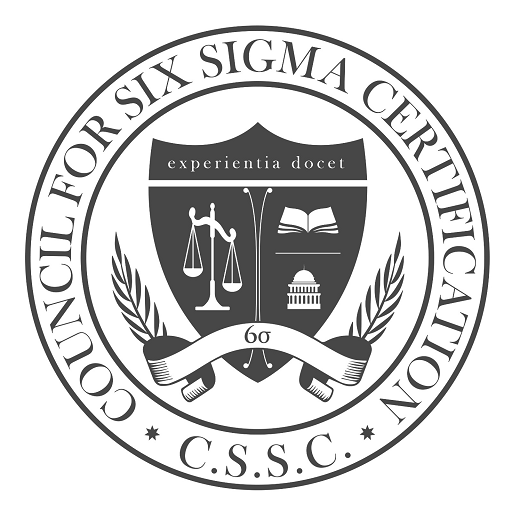
Lean consultant in Chennai
Lean consultant in Chennai In the quest for operational excellence and competitive advantage, businesses across industries are increasingly turning to Lean methodologies. Lean consultants play a crucial role in this transformation, guiding organizations through the process of adopting Lean principles to improve efficiency, reduce waste, and optimize processes. This blog will explore the vital role of Lean consultants, the benefits they offer, and the essential principles and tools they use to drive continuous improvement.
What Does a Lean Consultant Do?
A Lean consultant is an expert who helps organizations implement Lean principles—originally developed in the manufacturing sector by Toyota but now widely applicable across various industries. Their main objective is to streamline operations, minimize waste, and enhance value for customers. Lean consultants achieve this by thoroughly analyzing current workflows, identifying inefficiencies, and recommending actionable improvements.
They work closely with teams at all levels, from executives to front-line employees, to ensure that Lean practices are integrated into the company culture. Lean consultants provide essential training, support, and ongoing guidance to ensure successful adoption and sustainability of Lean methodologies.
The Advantages of Working with a Lean Consultant
1. Increased Efficiency
Lean consultants help organizations streamline their operations by eliminating non-value-added activities. This leads to significant improvements in efficiency, allowing businesses to achieve more with the same or fewer resources.
2. Cost Savings
A primary goal of Lean is to reduce waste, which can include excess inventory, overproduction, waiting times, and defects. Lean consultants identify these areas of waste and implement strategies to reduce or eliminate them, resulting in substantial cost savings.
3. Enhanced Quality
Lean principles emphasize quality at every stage of the process. Lean consultants work with organizations to implement robust quality control measures, reduce defects, and ensure that products or services meet or exceed customer expectations. This results in higher customer satisfaction and reduced costs related to rework and returns.
4. Better Employee Engagement
Lean consultants foster a culture of continuous improvement and encourage employee involvement in problem-solving. By empowering employees to contribute their ideas and expertise, organizations can achieve more effective solutions and increase job satisfaction and engagement.
5. Improved Customer Satisfaction
By focusing on delivering value and eliminating wasteful activities, Lean consultants help organizations better meet customer needs. This leads to higher levels of customer satisfaction and loyalty, which are essential for long-term success.
Core Principles of Lean
Lean consultants base their approach on several key principles:
1. Value
Defining value from the customer’s perspective is the first step in Lean. Lean consultants help organizations identify what customers value most and ensure that all processes are aligned to deliver this value efficiently.
2. Value Stream
The value stream encompasses all activities required to deliver a product or service. Lean consultants map out the value stream to identify waste and inefficiencies, providing a clear roadmap for process improvements.
3. Flow
Creating a smooth, uninterrupted flow of work through the value stream is a core Lean objective. Lean consultants work to eliminate obstacles and ensure that processes move seamlessly from one stage to the next.
4. Pull
Lean advocates for a pull-based system, where production is driven by actual customer demand rather than forecasts. Lean consultants help organizations implement pull systems to synchronize production with demand, reducing the risk of overproduction and excess inventory.
5. Perfection
The pursuit of perfection is an ongoing process in Lean. Lean consultants encourage organizations to strive for continuous, incremental improvements, fostering a culture where excellence is always the goal.
Essential Lean Tools and Techniques
Lean consultants use a variety of tools and techniques to achieve process improvements:
1. 5S
5S is a workplace organization method that stands for Sort, Set in order, Shine, Standardize, and Sustain. Lean consultants help organizations implement 5S to create clean, organized, and efficient work environments.
2. Value Stream Mapping
Value stream mapping is a visual tool used to analyze and optimize the flow of materials and information. Lean consultants use this tool to identify waste and develop strategies for process improvement.
3. Kaizen
Kaizen, meaning “continuous improvement” in Japanese, is a fundamental Lean principle. Lean consultants facilitate Kaizen events, where employees collaborate to identify and implement incremental improvements.
4. Kanban
Kanban is a visual scheduling system that helps manage work-in-progress and ensures that production is driven by actual demand. Lean consultants assist organizations in implementing Kanban to improve workflow and reduce lead times.
5. Root Cause Analysis
Root cause analysis is a problem-solving method used to identify the underlying causes of issues. Lean consultants use techniques such as the “5 Whys” and fishbone diagrams to uncover root causes and develop effective solutions.
6. SMED
Single-Minute Exchange of Die (SMED) is a Lean tool used to reduce setup times in manufacturing processes. Lean consultants help organizations implement SMED to enable faster changeovers and increase production flexibility.
Success Stories: Lean Consultants in Action
Manufacturing Case Study
A manufacturing company facing high production costs and long lead times brought in a Lean consultant. By conducting a value stream analysis, the consultant identified several inefficiencies, including excessive inventory and poor production scheduling. Implementing Lean tools such as Kanban and 5S led to a 30% reduction in lead times, a 25% decrease in inventory costs, and improved product quality.
Healthcare Case Study
A hospital struggling with patient flow and long emergency department wait times sought the help of a Lean consultant. Through value stream mapping and Kaizen workshops, the consultant identified bottlenecks and implemented changes to streamline processes. This resulted in a 40% reduction in patient waiting times and higher patient satisfaction scores.
Conclusion
Lean consultants are invaluable for organizations seeking to enhance operational efficiency and remain competitive. By leveraging Lean principles and tools, they help companies eliminate waste, improve processes, and deliver greater value to customers. Whether in manufacturing, healthcare, or service industries, Lean consultants drive significant and sustainable improvements, leading to increased productivity, cost savings, and customer satisfaction.
![]()

